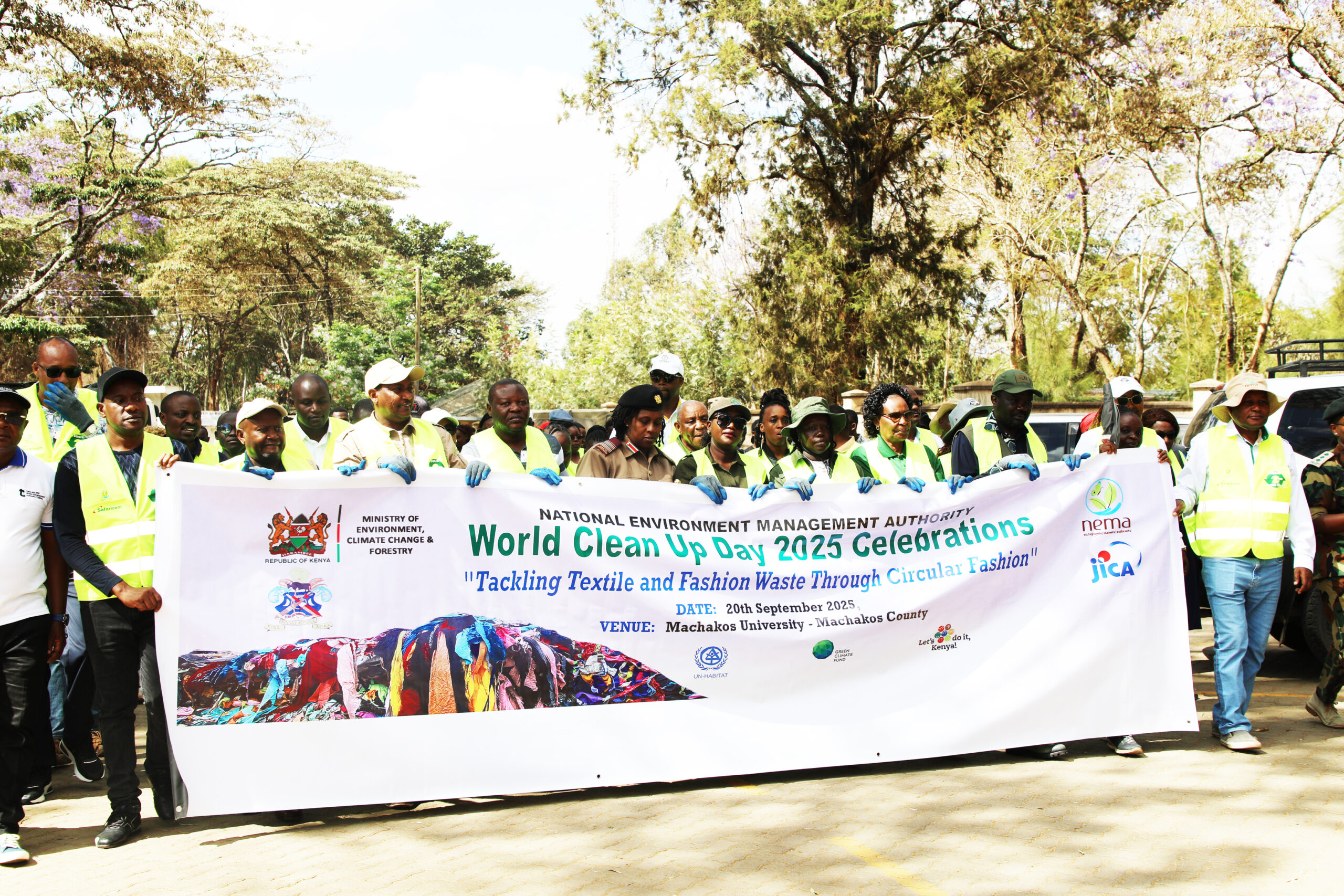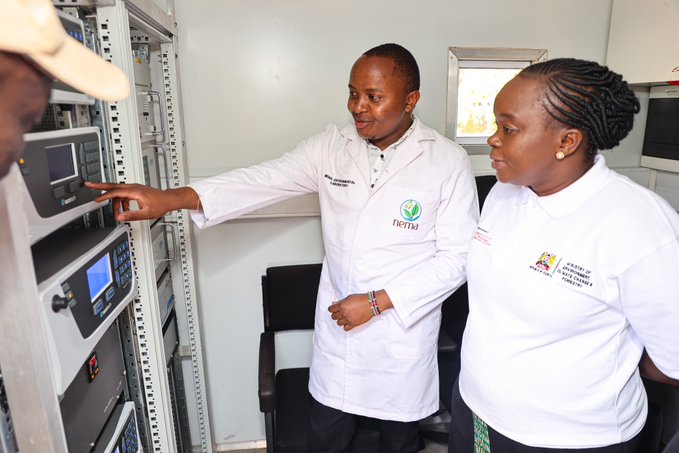Every second, a garbage truck full of clothes is dumped in a landfill or burned. The fashion industry globally generates 92 million tonnes of textile waste each year, overwhelming waste systems, polluting waterways, and fuelling the climate crisis.
Kenya imports over 185,000 tonnes of second-hand clothes (popularly known as mitumba) annually, sustaining millions of livelihoods. Yet, less than 1% of textile waste is recycled, leaving County governments to deal with mounting heaps of rejects. Discarded textiles are now among the top contributors to microplastic pollution in our rivers, lakes, and terrestrial habitats.
On the other hand, Kenya generates an estimated 8 million tonnes of solid waste annually, of which more than 60% is recyclable. Yet, the vast majority still ends up in dumpsites. This not only pollutes air and water but also costs County governments billions of shillings in collection and disposal.
On 20 September 2025, Kenya celebrated the World Clean-up Day- a global event that goes beyond picking up trash to confront the waste crisis head-on.
This year’s focus was on textile and fashion waste, themed- Tackling Textile and Fashion Waste Through Circular Fashion-one of the most visible and fast-growing environmental challenges.
The day highlighted the urgent need to raise awareness and shift habits toward responsible consumption, strengthen local and global waste management systems, and advance policies and partnerships that build urban resilience.
Textile waste fuels the triple planetary crisis: it clogs drains and worsens urban floods, pollutes rivers and oceans, harms biodiversity, and releases greenhouse gases that drive climate change. By tackling textile waste, World Cleanup Day aimed to promote sustainable use of textiles.
For the second time, World Clean-up Day was being celebrated as a United Nations–recognized event. Exemplifying that tackling waste is not just a local responsibility, but also an international obligation.
In Kenya, the national celebrations were held at Machakos University, Machakos County with a major clean-up around markets in Machakos town. The event was graced by various dignitaries led by NEMA, County Government officials, state departments among private sector players.
Speaking during the event, the NEMA Chairman, Emilio Mugo stated, “World Clean-up Day is symbolic, a day of solidarity, action, and hope. But let us be honest: one day of clean-up cannot undo 364 days of mismanaged waste. “He added that we need a systemic shift through segregation of waste at source, counties collaboration, partnerships, support small and medium enterprises as well as through public education.
The Chairman urged every actor — from manufacturers and importers to counties, traders, designers, and consumers to deliberately commit to reduce the burden of waste, safeguard public health, and unlock new opportunities in the green and circular economy.
To tackle the challenge of waste, pollution, biodiversity loss and climate change, the Mr. Mugo noted that NEMA is guided by five strategic goals; supporting low-emissions and climate-resilient development pathways; sustaining the ecological integrity of ecosystems; minimizing environmental pollution; accelerating the adoption of resource-efficient and circular economy practices and strengthening institutional capacity.
While speaking during the clean-up exercise, the NEMA Director General, Dr. Mamo B. Mamo, EBS stated that the day showcases what as citizens we should do every day to keep our environment clean. He added that we should stop the throwaway culture and exercise responsibility towards our waste. Dr. Mamo urged the County governments to ramp up efforts to manage solid waste which is devolved. He further urged citizens to exercise responsibility towards their waste to keep their environment clean.
By S. Irungu
The writer is a Senior Corporate Communications Officer at NEMA




